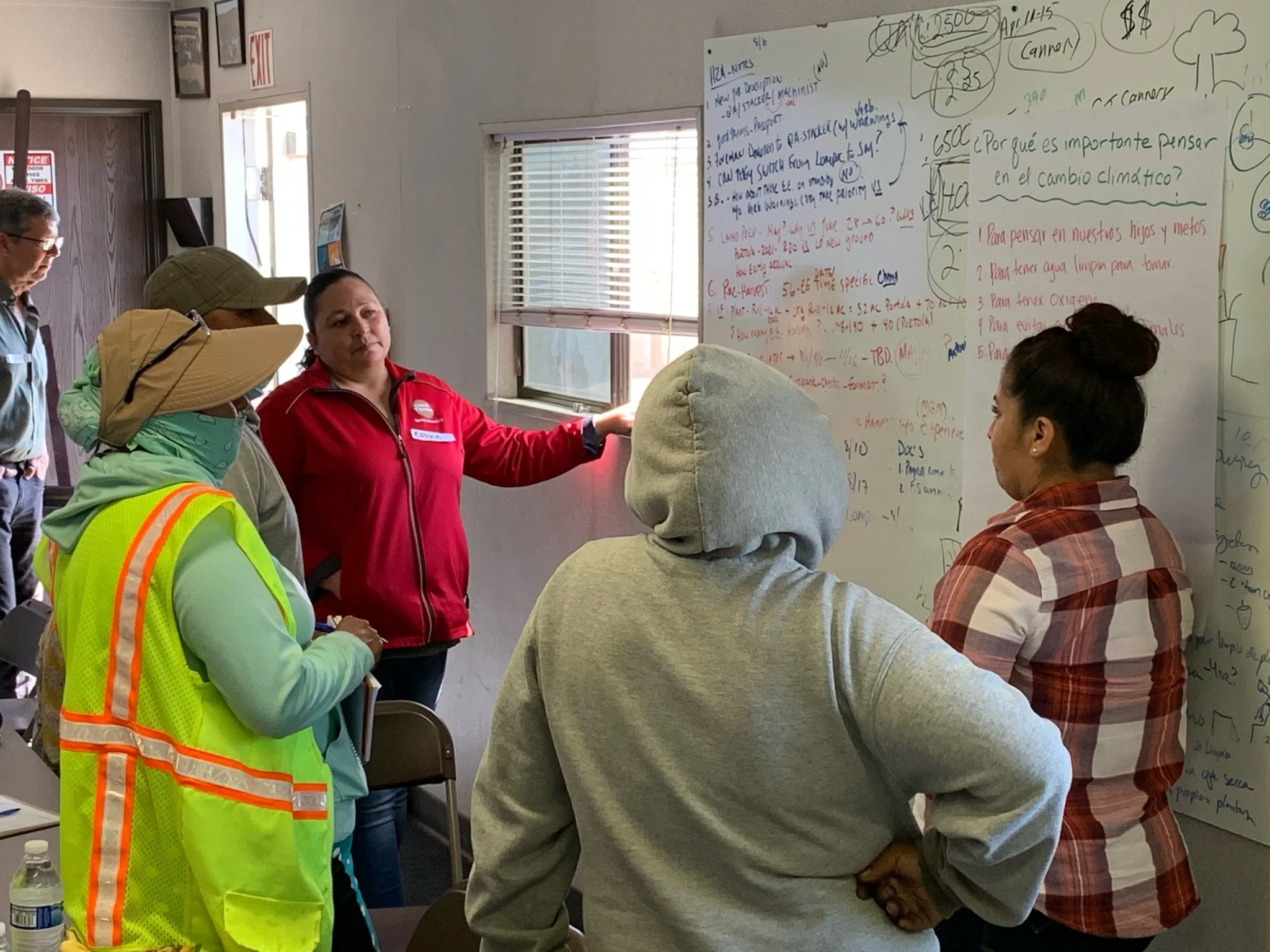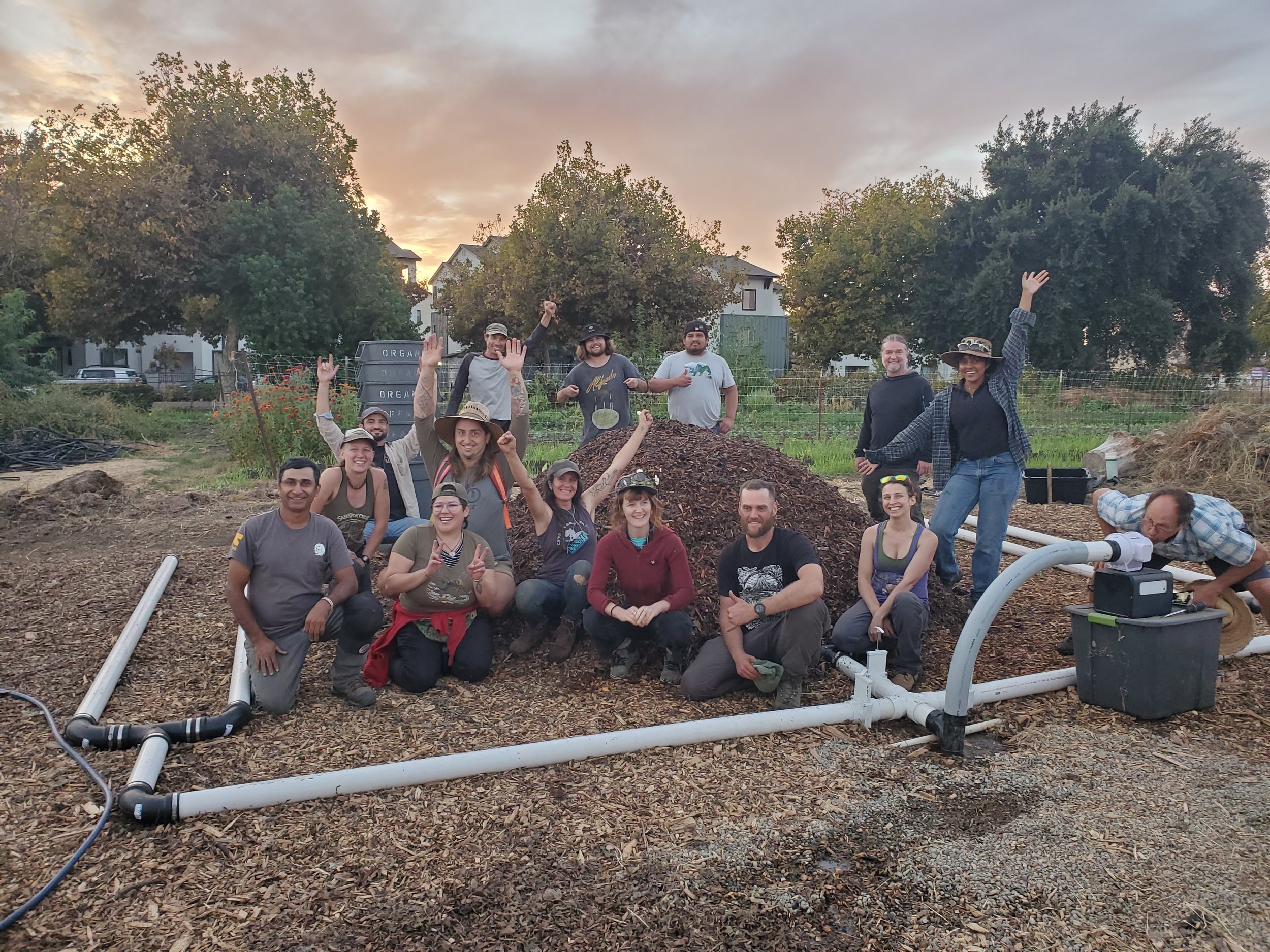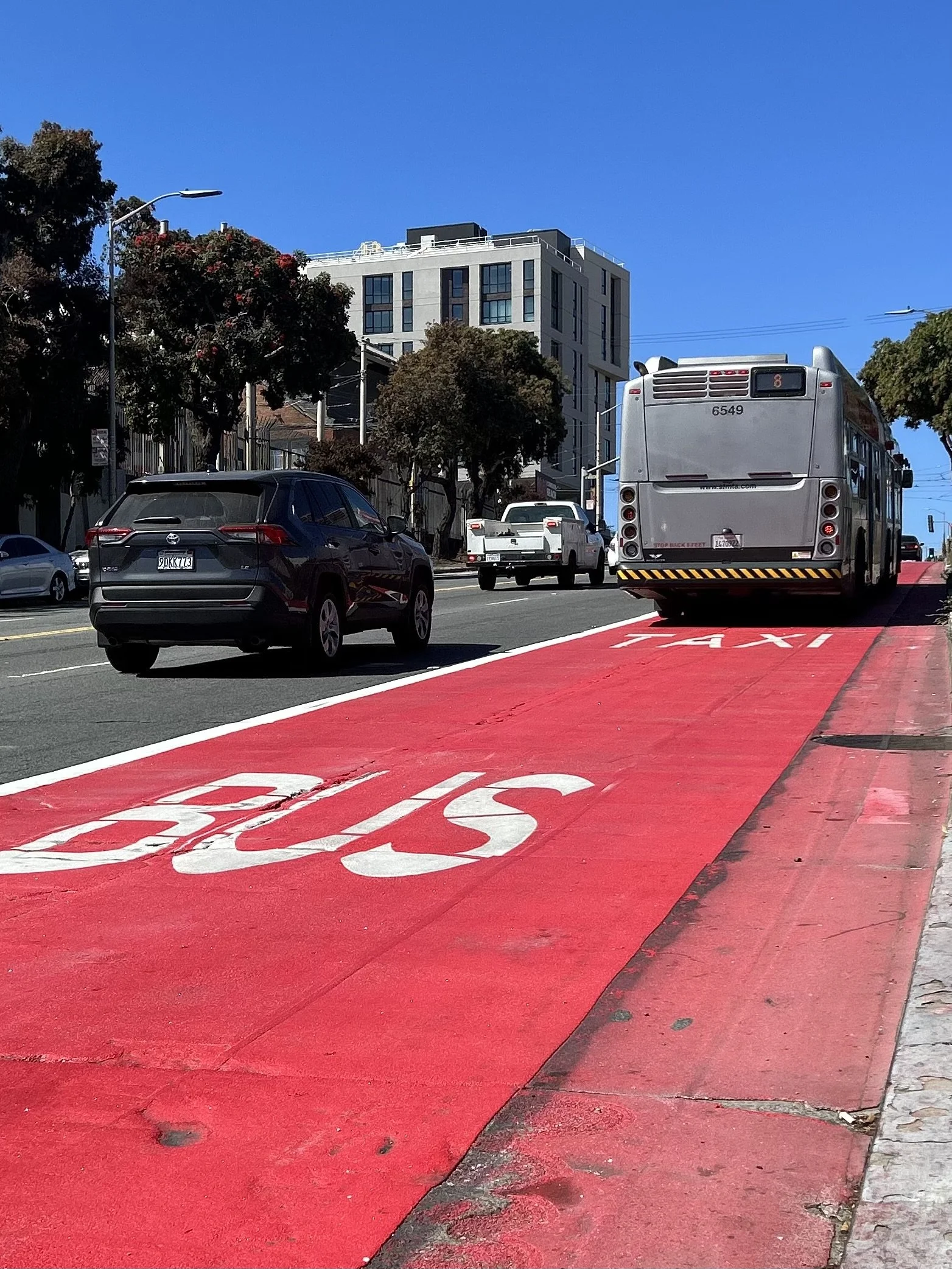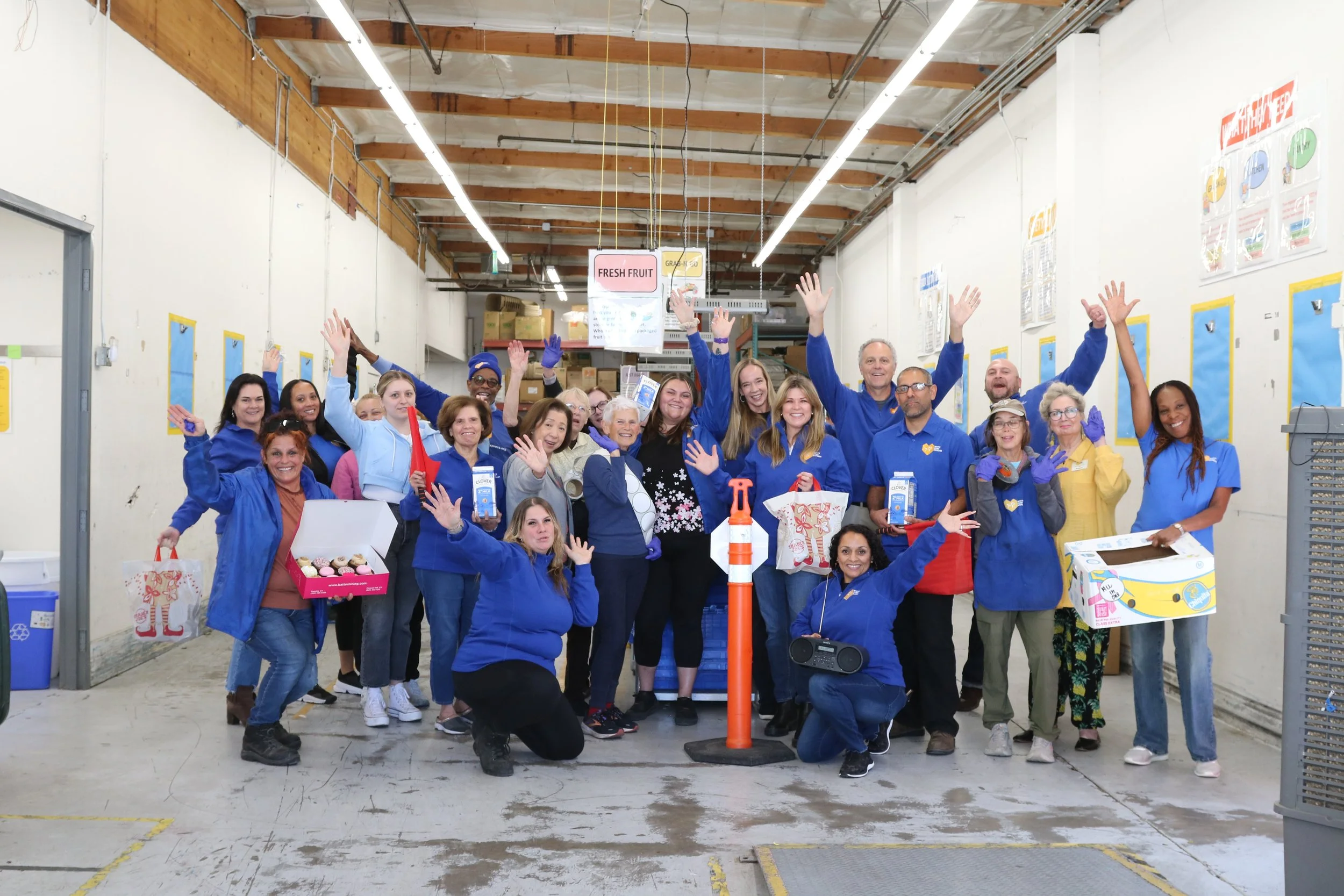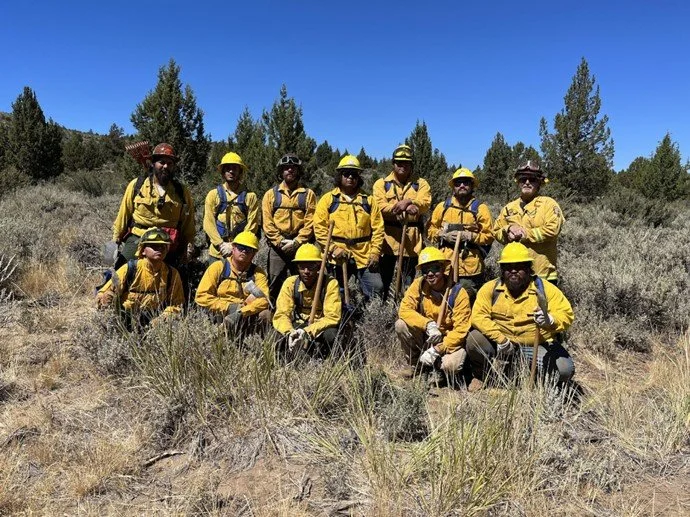CARB Supports a Multi-Generational Campaign to Advance Transportation Justice in City Heights
Community Efforts Lead the Way in Sacramento’s River District Transit Plans
Strategic Growth Council
The Sacramento Integrated Multimodal Place-Based Living Project is a Transformative Climate Communities initiative aimed at strengthening community engagement, increasing affordable housing, and expanding public transit in the River District neighborhood of Sacramento. One of the key features of the project, the Dos Rios Light Rail Station, will significantly increase residents’ accessibility to Downtown Sacramento and the greater Sacramento Area. The Mirasol Village Community Garden represents another success of the initiative, giving residents the opportunity to cultivate fresh produce and forge community bonds.
High Road to Better Agricultural Jobs
California Workforce Development Board
The High Road Training Partnerships Program granted nearly half a million dollars through the Equitable Food Initiative (EFI) to engage farmworkers and produce industry employers in the documentation and categorization of foundational, crop-specific, and technical skills. This work will support improved job quality for workers, a more professionalized workforce for employers, and the recognition of skills needed in environmentally sound agricultural production.
Creating an Emerald Necklace of Parks in the Los Angeles Basin
California Natural Resources Agency
Amigos de Los Rios, a Southern California-based nonprofit, is using California Climate Investments funding received through the Urban Greening Program, administered by the California Natural Resources Agency, to create an Emerald Necklace, a 17-mile loop of parks and greenways connecting disadvantaged communities to urban green spaces. The nonprofit recently transformed the exterior of Mary Jackson Elementary School in Altadena and revitalized a section of the Rio Honda Bike Path, integrating native plants and natural infrastructure to capture carbon and filter groundwater.
Canyon Fire: All Hands on Deck
California Department of Forestry and Fire Protection
In August of 2024, the Canyon Fire ignited in the Tuolumne River Canyon, quickly becoming a threat to nearby subdivisions. Fortunately, the Tuolumne Fire Safe Council had received California Climate Investments funding through the Wildfire Prevention Grants program and completed the Ponderosa-Mira Monte Shaded Fuel Break just two years prior. The fuel break gave wildland firefighters leverage in slowing and ultimately extinguishing the blaze, saving area homes and lives.
Bringing Southern Sierra Forests Back from the Ashes
California Department of Forestry and Fire Protection
Giant sequoias, the world’s largest trees and an iconic California species, face increasing risk due to severe wildfires brought on by unnaturally high fuel loads and climate change. To avoid further losses and promote new growth, a group of partners, with funding from California Climate Investments, is restoring and protecting southern Sierra sequoia forests.
Protecting Vulnerable Forests and Communities in Butte County
Wildfires have burned over 40% of Butte County in the past decade, destroying homes, communities, and vital forestland. Since 2021, the Butte County Fire Safe Council has been restoring nearly 10,000 acres of forest with over $22 million in California Climate Investments funding, granted by CAL FIRE’s Forest Health Program. When the Park Fire raged across northern Butte County, efforts to reduce fuels aided firefighters in diverting the blaze from residences and saving mature trees. Using techniques like thinning, mastication, reforestation, and prescribed burns, these efforts are reducing hazardous fuels and strengthening wildfire resilience. Through continued investment in wildfire mitigation, the Butte County Fire Safe Council is helping to protect communities and ensure forest health for the future.
Successes in Soil Stewardship: Funding Community Composting Across California
California Department of Resources Recycling and Recovery’s (CalRecycle) Community Composting for Green Spaces Grant Program is funding community composting at hundreds of sites across California. In the first cycle of funding, the grant program awarded $1.5 million to the People, Food, and Land Foundation, which supported community composting at 117 sites throughout California, planted 488 trees, created 4,418 cubic yards of compost, and reduced emissions by 2,508 MTCO2e of GHG emissions. An additional $4.2 million was awarded to the California Alliance for Community Composting and LA Compost in the second cycle of the program. Through the establishment or expansion of community composting sites, communities receive benefits such as part time jobs and training on composting practices, fresh produce from adjacent gardens, training on farming practices, an increase in shade from tree planting, and the development of green spaces.
Many Hearts Coming Together for San Francisco’s AHSC Project
In October 2023, the City of San Francisco’s Balboa Park Neighborhood held a ribbon cutting for 131 new affordable homes adjacent to the Balboa Park Bay Area Rapid Transit (BART) Station, known as Kapuso at the Upper Yard. These homes were built thanks to
$29.9 million from SGC’s Affordable Housing and Sustainable Communities (AHSC), in its fifth round of funding. The AHSC program funds the construction of affordable housing near transit as a key strategy to reduce GHG emissions by reducing vehicle miles traveled, and Kapuso at the Upper Yard is a key example of the need for this work.
Improving Sacramento Valley Soil Health with Winter Cover Crop Species
In 2020, Sarah Light, agronomy advisor at the University of California Cooperative Extension, partnered with the Colusa County Resource Conservation District, Davis Ranch, Richter Ag, and the United States Department of Agriculture Natural Resource Conservation Service to apply for a CDFA Healthy Soils Program Demonstration Grant. The team received $99,832 of grant funding to conduct a demonstration project on cover crops on two fields in the Sacramento Valley from fall 2020 to spring 2024.
Ambitious Partnership Delivering the Next Generation of Old-Growth Redwood Forests
Old‑growth redwood forests store more above‑ground carbon than any other forest type on Earth. Unfortunately, only 5% of old‑growth redwood forests survived extensive colonial logging in the 19th and 20th Centuries. Now, thanks in part to California Climate Investments funding awarded through CAL FIRE’s Forest Health Program, a partnership is working to establish the old‑growth forests of the future on California’s northern coast.
Fully Electrified Homeless Shelter Runs on Solar
The 40 Prado Road Homeless Services Center, a shelter located in San Luis Obispo, serves up to 100 occupants at a time. While it was built in 2018 under the 2013 Energy Code and met energy efficiency standards of the time, it was under the Low‑Income Weatherization Program (LIWP) that the shelter was able to become even more energy efficient, adding a 120‑kilowatt solar system and other energy efficiency measures thanks to California Climate Investments funding. The success at this property—the first homeless shelter to receive funding under LIWP—has paved the way for many similar properties across the state to also receive funding.
White Pony Express: Food Recovery for All
CalRecycle’s Food Waste Prevention and Rescue Grant Program funds projects that lower overall greenhouse gas emissions in California through food waste prevention and rescue projects, which reduce the amount of food disposed in landfills. Receiving multiple grants from the program since fiscal year 2016-17, White Pony Express: Food Recovery for All is a food waste rescue project operating out of Pleasant Hill, California. It has received a total of $701,530 from California Climate Investments, as well as additional funding from CalRecycle’s Edible Food Recovery Grant Program.
Toward Resilient California Communities: Solar + Storage Potential at Schools and Community Centers
California Strategic Growth Council
With funding from the Climate Change Research Program, PSE Healthy Energy is working with the Asian Pacific Environmental Network and Communities for a Better Environment to identify opportunities to build solar+storage resilience hubs at schools and community centers across California.
San Joaquin Valley Community Air Monitoring Network Expands Access to Air Quality Data
Cesar Chavez Living Schoolyard in East Oakland Supports Health and Wellbeing
California Natural Resources Agency
The Cesar Chavez Living Schoolyard project transformed an unshaded asphalt-covered schoolyard into a vibrant, tree-covered, park-like setting in a critically an underserved neighborhood in East Oakland. The site hosts two elementary schools, and their more than 600 students now enjoy a real grass play field, an expanded learning garden featuring an outdoor classroom and fruit orchard, a dry creek, a nature-play zone, as well as pollinator-attracting landscape areas, expanded seating and gathering options, and 65 new trees
Omnitrans ConnecTransit Plan: Planning Public Transit in the San Bernardino Valley
California Air Resources Board
Omnitrans is working with several partners to develop a community-driven transportation plan for the public transportation system in the San Bernardino Valley. Omnitrans is the public transportation provider for the San Bernardino Valley region. The ConnecTransit Plan will identify and prioritize clean transportation improvements that address hurdles to equity and access within the Omnitrans service area and that will reduce greenhouse gas emissions. The ConnecTransit Plan will provide a blueprint for future implementation projects for which Omnitrans will seek grant funds.
Zero-Emission Transit Vehicles, New Bike Lanes, and Shade Trees In Commerce
California Air Resources Board
Thanks to over $3 million from the Sustainable Transportation Equity Project, the City of Commerce has partnered with Climate Resolve and TreePeople to provide more clean transportation options to the city’s residents. Situated in southeast Los Angeles County in an area known for its commercial and industrial operations, Commerce has a history of providing free and reliable public transit service to its residents.
Sierra Institute High Road to Tribal Forest Restoration and Stewardship
California Workforce Development Board
The High Road to Tribal Forest Restoration and Stewardship project provides foundational training and skill building tied directly to work experience in forest health and landscape restoration. Through a partnership between Tribes, nonprofits, and regional employers, the project is working to increase employment opportunities and build capacity for Tribal Forest restoration crews. The project has formally engaged with fourteen Tribes, with training participants from over twenty Tribes.




